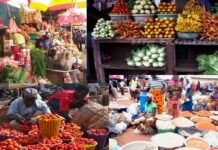The Nigerian economy has slipped into recession for the second time in five years as official figures published on Saturday showed that the economy shrank again in the third quarter of this year.
According to the figures, this year’s recession which comes amid rising debt profile, inflation and unemployment, is the worst in 36 years as data obtained from the World Bank showed that the country’s GDP dropped by 10.92 per cent in 1983 and 1.2 per cent in 1984.
The World Bank said in June that the collapse in crude oil prices, coupled with the COVID-19 pandemic was expected to “plunge the Nigerian economy into a severe recession, the worst since the 1980s”.
The NBS, in its Gross Domestic Product report for Q3, said the GDP, the broadest measure of economic prosperity, fell by 3.62 per cent in the three months up till September.
“The performance of the economy in Q3 2020 reflected residual effects of the restrictions to movement and economic activity implemented across the country in early Q2 in response to the COVID-19 pandemic,” the NBS said.
Nigeria has also seen its debt, inflation and unemployment levels rise this year – a development many experts have described as worrisome.
The CBN, in its half-year 2020 economic report, said total public debt outstanding was driven by rising fiscal deficits and associated borrowings, induced by low revenue inflow in the face of relatively high expenditure.
![]()










